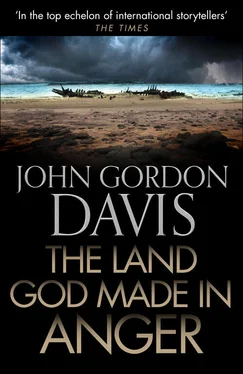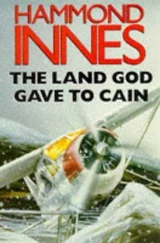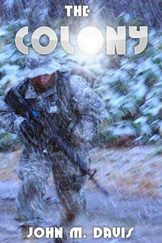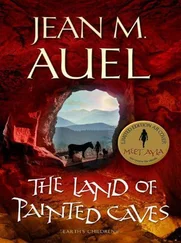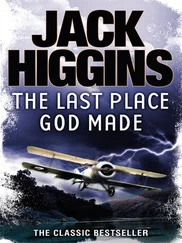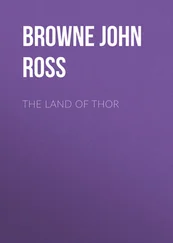Nor did he, for twelve years. He hated the place. Not the country – for it is a wonderful country – but the government with its Apartheid laws. But he still had connections with South Africa. There was his house, which returned a reasonable rent, mortgaged to pay for his trawler, and there was his fishing company, which most years showed a reasonable profit. While in Australia, he had formed Sausmarine, a small, one-freighter shipping line that plied between Australia, South Africa and Ghana, a route that became profitable when the Australian Dockworkers’ Union refused to off-load South African cargo. Australian businessmen document their cargo as bound for Ghana, and your understanding Sausmarine off-loads it in Cape Town. And vice versa. You’d never believe the mistakes these shipping clerks make: South African exports get misloaded into crates bearing Ghanaian labels. (Sausmarine never went near Ghana – her ship was called Rocket because she did the putative trip so fast.) And to make confusion more confounded, Sausmarine was registered in Panama. But, during all those years, McQuade did not sail to South Africa: Kid Childe, Tucker and L. C. Brooks ran the ship, and McQuade ran the company from a one-roomed office above a Greek café on the Adelaide waterfront. It was not bad business until sanctions against South Africa heated up and the competition with other sanction-busters became too sharp. McQuade had not the slightest compunction about beating the Dockworkers’ Union at their own commie game, but he drew the line at more prison. Finally he decided to sell up Sausmarine, go back to South Africa and work the fishing company hard with a skeleton crew, then sell it and put the money into a small passenger ship to ply down the Great Barrier Reef, from Cairns to Sydney. That’s a lovely part of the world, and there was a crying need for that service.
There was another good reason for getting his investments out: called 435. United Nations’ Resolution 435 ordered South Africa, the polecat nation of the world, to grant independence to South West Africa-Namibia. For years South Africa had been fighting a war with SWAPO, the South West African Peoples Organization, a terrorist Marxist movement, and had no intention of handing the country over to them : but now SWAPO had thirty thousand Cuban soldiers to help, and McQuade saw the writing on the wall. The same writing that had spelled out the collapse of Rhodesia and the Portuguese colonies and the Congo and the rest of British Africa: you win every battle but lose the war. God knows McQuade had no love for the South African Government but he had much less love for communists, and certainly no desire to fish in their territorial waters. So – sell up whilst the going was still good, and wash his hands of goddam Africa forever.
That is how James McQuade was feeling when he walked off the tarmac into Jan Smuts Airport in Johannesburg and heard South African accents again. Ivor Nathan was there to meet him, looking as much like Groucho Marx as ever. They had been at university together. Nathan gave him a bed for the night and tried to cheer him up: South Africa wasn’t as bad as it used to be, Nathan said, Apartheid was unenforced almost everywhere now, except in the rural districts where the Hairybacks still thought the world was flat. ‘But it’s all still on the bloody statute book,’ McQuade said.
‘The Sex Laws have been repealed,’ Nathan said. ‘The Immorality Act and the Mixed Marriages Act. The government is trying to reform but it daren’t repeal them all at once, for fear of a backlash, but give them time, my boy, my life.’
‘Just another decade or two?’
‘Well, we’ve got a Coloured House of Representatives now, and an Indian House of Delegates. I tell you, things are changing.’
‘But no Black House. It’s all too little too late. And what about this right-wing AWB mob, stomping around with their bloody swastikas and armbands?’
‘Lunatic fringe,’ Nathan said.
‘They don’t sound so fringe in the overseas press! It sounds as if the whole country’s turned Nazi.’
‘Lunatic fringe,’ Nathan insisted.
McQuade sighed. ‘Anyway, what about the war on the border – that’s my problem. What about 435? Is South Africa going to grant independence to Namibia? That’s the question. If so, the fishing industry goes down the communist drain and I’m bankrupt.’
‘No way is South Africa going to implement 435 as long as the Cubans are there, and no way is Castro going to withdraw them because he wants to go down in history as the Scourge of the Afrikaner. Independence is a hell of a long way off, so your fishing’s safe for a long time.’
‘Is it, hell. The fleets of the world are out there raping the Benguela current because South Africa daren’t enforce Namibia’s two hundred-mile maritime belt because of goddam 435.’
Nathan sighed. ‘What’s Australia like?’
‘Australia’s great,’ McQuade said, ‘and it’s got no Black Problem.’
‘Because the Aussies shot most of them. At least we were Christians.’
‘ We? You’re a closet Goy, Nathan.’
‘Once a South African, always a South African.’ Nathan sighed. ‘You can’t expect too much of us.’
The next day McQuade flew to Cape Town. Even beautiful Table Mountain rising up seemed to be only a monument to Afrikanerdom, and God he was glad he was washing his hands of the lot of them. He was an Australian now. He checked his house. He felt no pangs when he saw the nice old place, and he was glad he was getting rid of it. He visited half a dozen estate agents. Then he bought an old Landrover. That afternoon he set off, driving north, out of the beautiful vineyard country with its grand old Dutch architecture, heading for the Orange River and South West Africa-Namibia beyond, the Land God Made in Anger.
You probably don’t know that bridge over the Orange River. The road curves down out of the dry, stony hills at Vioolsdrift where there is a general dealer’s store, a gas station and a police post. Then suddenly there is the river, the water muddy orange, a belt of green, then the flinty desert rising up beyond: hot, hard, dry as hell. McQuade saw nothing beautiful in that desolate vista, but when he was halfway over that river he felt his depression lift. Man, this was dramatic country, he had forgotten how magnificently dramatic it was. And the Republic of South Africa was officially behind him and there was a feeling of youthfulness on this side of the river, a frontier feeling of wide open spaces, as if the long arm of Pretoria had to pull its punches here because of 435, and everybody knew it. He stopped at Noordoewer, which is a little hotel on the other side. There were a score of Coloureds squatting around, doing nothing. He filled up with diesel and drank a row of cold beers, and the Afrikaans words he had not used for twelve years came flooding back to his tongue without thinking: and, by God, it was a strange but nice feeling. These were people he just naturally knew and understood, and he almost felt like an African again.
He bought a six-pack of beers and set off north again. And there was nothing beautiful in that flat, hard, grey-brown desert stretching on and on, blistering hot, and maybe it was the beer he was drinking as he drove, but he found himself almost happy, and it almost felt as if he was coming home. At Keetmanshoop he turned west, towards Lüderitz on the faraway Atlantic, and now he was driving through thorn-tree country with sparse yellow grass, and he saw wild horses and ostriches. Near Aus he turned north again, through the vast cattle country, ranches thousands of square kilometres in size. That night he slept beside his Landrover, under the stars, near the oasis called Sesriem, where the creeping sand dunes are three hundred feet high and change colour from pink to mauve to apricot to gold in the shifting light. Maybe it was because of all the beer, but it seemed there is no feeling like an African night, no stars so bright, no night sounds so intimate and significant, no smell and light of fire so true to life. And even the next afternoon, when he came grinding down out of the hot hard hills of the Namib desert onto the vast sand-duned plains, and then the distant hostile Atlantic began to show through the shimmering haze, until finally, the flat white smudge of Walvis Bay, one of the drabbest ports in this world, began to coagulate in the distance – even then he still felt better about coming back. As Nathan had said: ‘Once a South African, always a South African – you cannot expect too much of us.’
Читать дальше
